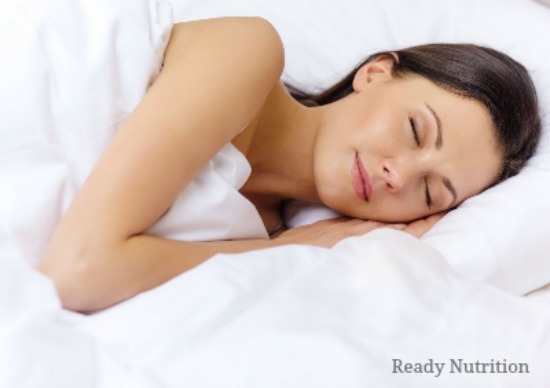
“I love sleep. My life has the tendency to fall apart when I’m awake, you know?” ― Ernest Hemingway
Scientists have yet to discover WHY humans need sleep, but one thing is certain: not getting enough shut-eye can lead to serious – even life-threatening – consequences.
In recent years, studies on sleep have revealed all kinds of interesting things.
Awakening several times through the night is more detrimental to people’s positive moods than getting the same shortened amount of sleep without interruption. “When your sleep is disrupted throughout the night, you don’t have the opportunity to progress through the sleep stages to get the amount of slow-wave sleep that is key to the feeling of restoration,” study lead author Patrick Finan, Ph.D., an assistant professor of psychiatry and behavioral sciences at the Johns Hopkins University School of Medicine, explained.
When we sleep in an unfamiliar place for the first time, we often feel as though we haven’t slept as well as usual. This is often referred to as “the first-night effect.” Researchers from Brown University discovered the reason why: under those conditions, one hemisphere of the brain stays more awake to keep watch. This phenomenon is likely a survival mechanism that allows us to be more aware of any danger that may arise while we are sleeping.
A 2014 study published in The Journal of Neuroscience found that 24 hours of sleep deprivation caused healthy people to have hallucinations and other schizophrenia-like symptoms.
Perhaps the most promising theory of sleep so far is that it plays a major role in the brain’s connectivity and plasticity, explains Live Science:
Plasticity is involved in learning and memory. Although it’s unclear exactly how, plenty of evidence suggests that losing sleep can cause problems with memory, particularly working memory, the process that allows people to hold information in an easily accessible way while working out a problem. People who are sleep-deprived also struggle with choosing what to pay attention to and regulating their emotions.
Much about sleep remains a mystery, but six recent studies have uncovered more about the importance of getting adequate Zzzzs.
Let’s take a look at those studies now.
Inadequate sleep is a worldwide public health problem
A study published in the journal Sleep found that inadequate sleep is a public health problem affecting more than one in three adults worldwide and that insufficient sleep could also have serious economic consequences. In Australia, between 35 and 45 percent of adults report inadequate sleep and associated issues, but the researchers emphasize that the problems associated with lack of sleep apply to other nations with similar demographics:
Some 35 percent of U.S. adults are not getting the recommended 7 hours of sleep each night. About 30 percent of Canadians don’t feel they’re getting enough sleep. Some 37 percent of those in the UK, 28 percent of people in Singapore, and 26 percent of French people also report insufficient sleep.
Insufficient sleep is associated with:
- lapses in attention and the inability to stay focused
- reduced motivation
- compromised problem solving
- confusion, irritability and memory lapses
- impaired communication
- slowed or faulty information processing and judgment
- diminished reaction times
- indifference and loss of empathy
- increased risk of heart attacks, stroke, hypertension, obesity, diabetes, and depression
The goal of this study was to measure the economic consequences of limited sleep time in Australians, defined as “difficulties with sleep initiation, maintenance or quality associated with the presence of impaired daytime alertness” at least several days a week.” The researchers found that the financial costs associated with inadequate sleep are substantial: the estimated overall cost of inadequate sleep in Australia in 2016-17 (population: 24.8 million) was $45.21 billion.
The impacts of inadequate sleep were summed up by the researchers:
We are in the midst of a worldwide epidemic of inadequate sleep, some from clinical sleep disorders, some through pressure from competing work, social and family activities and some from failure to give sleep sufficient priority through choice or ignorance. Apart from its impact on well-being, this problem comes at a huge economic cost through its destructive effects on health, safety and productivity. Addressing the issue by education, regulation and other initiatives is likely to deliver substantial economic as well as health benefits.
Poor sleep quality appears to be linked to junk food cravings and related health problems
A study by University of Arizona Health Sciences sleep researchers found that junk food cravings were associated with double the increase in the likelihood of nighttime snacking, which was associated with an increased risk for diabetes. They also found that poor sleep quality seemed to be a major predictor of junk food cravings and that junk food cravings were associated with a greater likelihood of participants reporting obesity, diabetes, and other health problems.
The study was conducted via a nationwide, phone-based survey of 3,105 adults from 23 U.S. metropolitan areas. Participants were asked if they regularly consumed a nighttime snack and whether lack of sleep led them to crave junk food. They also were asked about their sleep quality and existing health problems. About 60 percent of participants reported regular nighttime snacking and two-thirds reported that lack of sleep led them to crave more junk food.
Light exposure during sleep may increase insulin resistance
According to preliminary results from a new study published by the American Academy of Sleep Medicine, nighttime light exposure during sleep may affect metabolic function.
“Our preliminary findings show that a single night of light exposure during sleep acutely impacts measures of insulin resistance,” said lead author Ivy Cheung Mason, PhD, who was a postdoctoral fellow at Northwestern University Feinberg School of Medicine when this study was conducted. “Light exposure overnight during sleep has been shown to disrupt sleep, but these data indicate that it may also have the potential to influence metabolism.”
The researchers found that a single night of light exposure during sleep can acutely impact measures of insulin resistance. Insulin is a hormone made by your pancreas. It allows your cells to use glucose (sugar) for energy. When a person has insulin resistance, it means they have cells throughout their bodies that don’t use insulin effectively. The cells have trouble absorbing glucose, which causes a buildup of sugar in the blood.
If your blood glucose levels are higher than normal, but not high enough to be considered type 2 diabetes, you have a condition called prediabetes, which is caused by insulin resistance.
While more research is needed, this finding is concerning, given the increasingly widespread use of artificial light.
Study links screen time to insomnia symptoms and depressive symptoms in adolescents
Greater amounts of daily screen time are associated with more insomnia symptoms and shorter sleep duration among adolescents, a new study found.
The study, published by the American Academy of Sleep Medicine, revealed that social messaging, web surfing and TV/movie watching, insomnia symptoms and sleep duration fully explained an association between screen-based activities and depressive symptoms.
“Higher rates of depressive symptoms among teens may be partially explained through the ubiquitous use of screen-based activities, which can interfere with high-quality restorative sleep,” said postdoctoral researcher Xian Stella Li, Ph.D., of the findings.
The research team suggested that parents, teachers, and health care providers educate young people about the risks of too much screen time, and teach them how to regulate it to improve sleep quality and reduce depression.
Why do some sleep-deprived people experience worse cognitive functioning than others?
Many studies have linked sleep loss with cancer, cardiovascular disease, Alzheimer’s, and other disorders, and it is well known that sleep loss negatively affects cognitive performance. Those adverse effects are experienced differently from person to person, however, and little is known about how to accurately predict and detect these individual sleep-deprivation deficits.
A recent study conducted at the University of Pennsylvania School of Medicine is the first to find that microRNAs in the blood are changed by total sleep deprivation (TSD) for 39 hours, and by psychological stress, and can predict the resulting cognitive performance in adults.
From the press release:
MiRNAs are small non-coding RNAs and are key regulators of gene expression, which guides information in a gene to be made into a functional protein. MiRNAs typically repress expression of their target messenger RNAs, preventing translation into proteins.
“These findings show for the first time that miRNAs can track responses to total sleep deprivation and its detrimental combination with psychological stress and predict robust individual differences in various types of cognitive performance,” said senior author Namni Goel, PhD, an associate professor of Psychology in Psychiatry. “As such, miRNAs are viable biomarkers of sleep deprivation, psychological stress, and cognitive vulnerability in humans and can be used to identify individuals ahead of time who are in need of countermeasures or interventions such as caffeine or naps to mitigate or prevent impairments associated with insufficient sleep.”
Optimal sleep linked to lower risks for dementia and early death
Short and long daily sleep duration were risk factors for dementia and premature death in a study of Japanese adults aged 60 years and older. The findings of this study are published in the Journal of the American Geriatrics Society.
For this study, researchers followed 1,517 adults for 10 years. During that time, 294 of the participants developed dementia, and 282 died. After adjusting for age and sex, the study found that rates of dementia and all-cause mortality were greater in participants with daily sleep duration of fewer than 5.0 hours and 10 hours or more, compared with those with daily sleep duration of 5 to 6.9 hours. Participants with short sleep duration who had high physical activity did not have a greater risk of dementia and death, however.
If you are one of the millions of people who just aren’t getting enough Zzzzs, there are things you can do to naturally improve the quality and quantity of your sleep:
- Establish consistent sleep and wake times – even on the weekends
- Set a bedtime that is early enough for you to get at least 7 hours of sleep
- Don’t go to bed unless you are sleepy
- Create a comfortable and inviting sleep environment – your bedroom should be calming, cool (65 degrees is optimal but no warmer than 75 degrees), and dark
- Create a relaxing bedtime routine – turn off electronic devices, take a bath or read a book (not IN bed), or listen to soothing music
- Avoid using your computer or watching TV while in bed – turn off electronic devices at least 30 minutes before bedtime
- Limit exposure to bright light in the evenings
- Finish eating 2-3 hours before you go to bed
- Reduce your fluid intake before bedtime
- Exercise regularly (but not for a few hours before bed – it may keep you awake if done too close to bedtime)
- Avoid caffeine too close to bedtime
For more tricks and tips to help you improve your sleep quality and quantity, please see Natural Ways to Improve Sleep.

